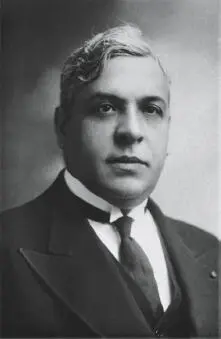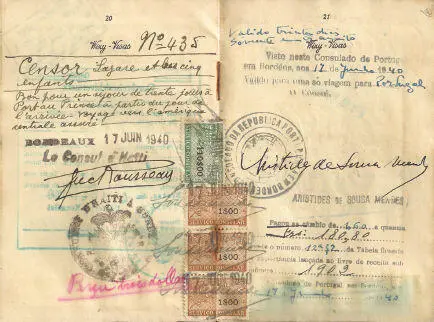In the days of Senusret III and Amenemhat III the Egyptians had neither bulldozers nor dynamite. They didn’t even have iron tools, work horses or wheels (the wheel did not enter common usage in Egypt until about 1500 BC). Bronze tools were considered cutting-edge technology, but they were so expensive and rare that most of the building work was done only with tools made of stone and wood, operated by human muscle power. Many people argue that the great building projects of ancient Egypt – all the dams and reservoirs and pyramids – must have been built by aliens from outer space. How else could a culture lacking even wheels and iron accomplish such wonders?
The truth is very different. Egyptians built Lake Fayum and the pyramids not thanks to extraterrestrial help, but thanks to superb organisational skills. Relying on thousands of literate bureaucrats, pharaoh recruited tens of thousands of labourers and enough food to maintain them for years on end. When tens of thousands of labourers cooperate for several decades, they can build an artificial lake or a pyramid even with stone tools.
Pharaoh himself hardly lifted a finger, of course. He didn’t collect taxes himself, he didn’t draw any architectural plans, and he certainly never picked up a shovel. But the Egyptians believed that only prayers to the living-god pharaoh and to his heavenly patron Sobek could save the Nile Valley from devastating floods and droughts. They were right. Pharaoh and Sobek were imaginary entities that did nothing to raise or lower the Nile water level, but when millions of people believed in pharaoh and Sobek and therefore cooperated to build dams and dig canals, floods and droughts became rare. Compared to the Sumerian gods, not to mention the Stone Age spirits, the gods of ancient Egypt were truly powerful entities that founded cities, raised armies and controlled the lives of millions of humans, cows and crocodiles.
It may sound strange to credit imaginary entities with building or controlling things. But nowadays we habitually say that the United States built the first nuclear bomb, that China built the Three Gorges Dam or that Google is building an autonomous car. Why not say, then, that pharaoh built a reservoir and Sobek dug a canal?
Living on Paper
Writing thus facilitated the appearance of powerful fictional entities that organised millions of people and reshaped the reality of rivers, swamps and crocodiles. Simultaneously, writing also made it easier for humans to believe in the existence of such fictional entities, because it habituated people to experiencing reality through the mediation of abstract symbols.
Hunter-gatherers spent their days climbing trees, looking for mushrooms, and chasing boars and rabbits. Their daily reality consisted of trees, mushrooms, boars and rabbits. Peasants worked all day in the fields, ploughing, harvesting, grinding corn and taking care of farmyard animals. Their daily reality was the feeling of muddy earth under bare feet, the smell of oxen pulling the plough and the taste of warm bread fresh from the oven. In contrast, scribes in ancient Egypt devoted most of their time to reading, writing and calculating. Their daily reality consisted of ink marks on papyrus scrolls, which determined who owned which field, how much an ox cost and what yearly taxes peasants had to pay. A scribe could decide the fate of an entire village with a stroke of his stylus.
The vast majority of people remained illiterate until the modern age, but the all-important administrators increasingly saw reality through the medium of written texts. For this literate elite – whether in ancient Egypt or in twentieth-century Europe – anything written on a piece of paper was at least as real as trees, oxen and human beings.
When the Nazis overran France in the spring of 1940, much of its Jewish population tried to escape the country. In order to cross the border south, they needed visas to Spain and Portugal, and tens of thousands of Jews, along with many other refugees, besieged the Portuguese consulate in Bordeaux in a desperate attempt to get the life-saving piece of paper. The Portuguese government forbade its consuls in France to issue visas without prior approval from the Foreign Ministry, but the consul in Bordeaux, Aristides de Sousa Mendes, decided to disregard the order, throwing to the wind a thirty-year diplomatic career. As Nazi tanks were closing in on Bordeaux, Sousa Mendes and his team worked around the clock for ten days and nights, barely stopping to sleep, just issuing visas and stamping pieces of paper. Sousa Mendes issued thousands of visas before collapsing from exhaustion.
The Portuguese government – which had little desire to accept any of these refugees – sent agents to escort the disobedient consul back home, and fired him from the foreign office. Yet officials who cared little for the plight of human beings nevertheless had deep respect for documents, and the visas Sousa Mendes issued against orders were respected by French, Spanish and Portuguese bureaucrats alike, spiriting up to 30,000 people out of the Nazi death trap. Sousa Mendes, armed with little more than a rubber stamp, was responsible for the largest rescue operation by a single individual during the Holocaust. 2

Aristides de Sousa Mendes, the angel with the rubber stamp.
Courtesy of the Sousa Mendes Foundation.
The sanctity of written records often had far less positive effects. From 1958 to 1961 communist China undertook the Great Leap Forward, when Mao Zedong wished to rapidly turn China into a superpower. Mao ordered the doubling and tripling of agricultural production, using the surplus produce to finance ambitious industrial and military projects. Mao’s impossible demands made their way down the bureaucratic ladder, from the government offices in Beijing, through provincial administrators, all the way to the village headmen. The local officials, afraid of voicing any criticism and wishing to curry favour with their superiors, concocted imaginary reports of dramatic increases in agricultural output. As the fabricated numbers made their way up the bureaucratic hierarchy, each official only exaggerated them further, adding a zero here or there with a stroke of a pen.

One of the thousands of life-saving visas signed by Sousa Mendes in June 1940 (visa #1902 for Lazare Censor and family, dated 17 June 1940).
Courtesy of the Sousa Mendes Foundation.
Consequently, in 1958 the Chinese government was told that annual grain production was 50 per cent more than it actually was. Believing the reports, the government sold millions of tons of rice to foreign countries in exchange for weapons and heavy machinery, assuming that enough was left to feed the Chinese population. The result was the worst famine in history and the death of tens of millions of Chinese. 3
Meanwhile, enthusiastic reports of China’s farming miracle reached audiences throughout the world. Julius Nyerere, the idealistic president of Tanzania, was deeply impressed by the Chinese success. In order to modernise Tanzanian agriculture, Nyerere resolved to establish collective farms on the Chinese model. When peasants objected to the command, Nyerere sent the army and police to destroy traditional villages and forcefully move hundreds of thousands of peasants onto the new collective farms.
Government propaganda depicted the farms as miniature paradises, but many of them existed only in government documents. The protocols and reports written in the capital Dar es Salaam said that on such-and-such a date the inhabitants of such-and-such village were relocated to such-and-such farm. In reality, when the villagers reached their destination, they found absolutely nothing there. No houses, no fields, no tools. The officials reported great successes to themselves and to President Nyerere. In fact, within less than ten years Tanzania was transformed from Africa’s biggest food exporter into a net food importer that could not feed itself without external assistance. In 1979, 90 per cent of Tanzanian farmers lived in collective farms, but they generated only 5 per cent of the country’s agricultural output. 4
Читать дальше
Конец ознакомительного отрывка
Купить книгу














